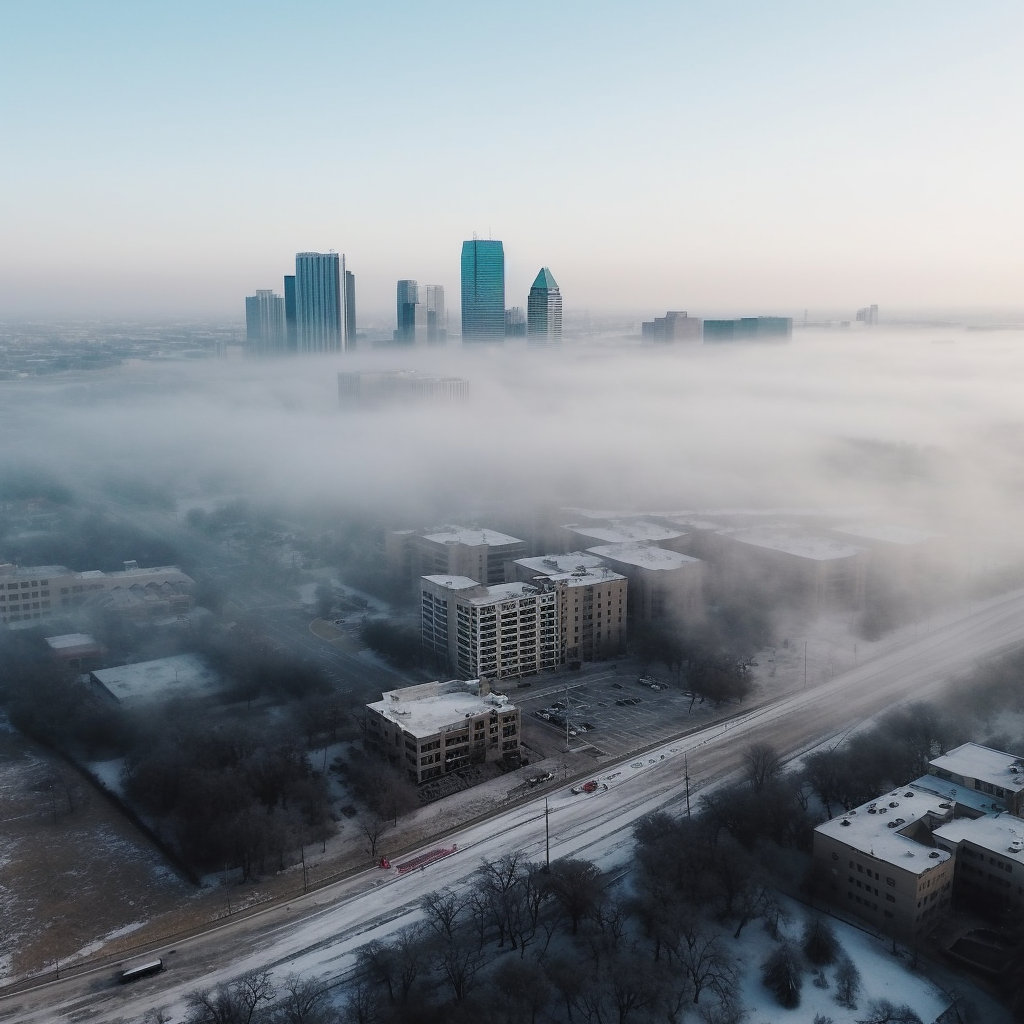February 1, 2024
The Frigid Weather Crisis – Uncovering Air Pollution in Texas During Freezing Temperatures
Book a Demo
Frigid weather has gripped Texas in recent days, causing an unexpected consequence: air pollution from industrial facilities. As freezing temperatures and power outages persist, over a million pounds of air pollution have been emitted, exacerbating the already concerning issue of pollution in the state.
One of the reasons behind this unintended air pollution is the loopholes present in environmental enforcement. These loopholes allow companies to exceed emission limits without facing any consequences. As a result, during extreme weather events, when facilities should ideally be taking measures to minimize pollution, they are instead emitting significant amounts of harmful substances into the air.
Furthermore, the lack of weatherization in these industrial facilities contributes to the problem. Without proper insulation and protection against freezing temperatures, these facilities become more sensitive to weather conditions, leading to a further increase in air pollution during cold spells.
Criticism is being directed towards these polluting companies for their failure to adequately prepare for inclement weather. The argument is that with proper weatherization and contingency plans in place, the emission of pollutants could have been minimized or even avoided altogether.
Compounding the issue is the existence of federal and state regulations that provide loopholes for companies to escape liability for emissions during certain events. The practice of using “startups, shutdowns, and malfunctions” as excuses to surpass emission limits without facing any penalties is a concerning trend that needs to be addressed.
The sensitivity of these industrial facilities to weather conditions only worsens the air pollution problem during extreme cold spells. As temperatures plummet and power outages persist, these facilities struggle to maintain stable operations, leading to higher emissions.
The situation calls for urgent action. It is crucial to close the existing loopholes in environmental enforcement and hold companies accountable for their emissions, regardless of the weather conditions. Additionally, regulations should be in place to ensure that industrial facilities properly weatherize their operations to minimize pollution during extreme weather events.
Ultimately, it is vital to prioritize the health and well-being of the population over the interests of polluting industries. By addressing these issues and implementing stricter regulations, we can work towards a cleaner and healthier environment for all Texans.
Science4Data is committed to cut through greenwashing and measure real impact. Join the journey to a sustainable future. Your actions matter.



